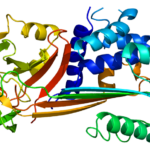When someone hears of a preterm birth, their main concern is the health and well-being of the baby, not the long-term health implications for the mother. A new study, led by Dr. Janet Catov, associate professor at the University of Pittsburgh School of Medicine and researcher at Magee-Womens Research Institute, found that preterm birth may help predict heart disease risk in women.
The study, published in the American Heart Association’s journal Hypertension, looked at data from 1,049 mothers who were followed for 25 years after the birth a preterm baby. Half of the women were white and half were black to determine if race was also a factor for heart disease risk when combined with preterm birth.
Researchers found that women who gave birth before 37 weeks of pregnancy were more likely to see their blood pressure rise through their childbearing years compared with women who delivered at 40 weeks, which is full-term.
“This study has important health implications for many women,” Catov said. “Preterm birth coupled with higher blood pressure may identify women who are at a high risk for strokes and heart attacks.
The results also highlight the importance of race.
“Black women were much more likely to have preterm deliveries, to follow an increasing blood pressure pattern and to have coronary artery calcification, which is a strong predictor of heart disease risk,” Catov added. “I strongly encourage all women to tell their doctors about their pregnancy history.
According to the Centers for Disease Control and Prevention, nearly one in 10 babies in the U.S. was born preterm in 2017. Along with age and race, a variety of other factors can be associated with preterm birth, including smoking, alcohol and illicit drug consumption and carrying multiples.
“Preterm births or hypertension in pregnancy could be a flag similar to other heart disease risk factors like smoking or obesity,” said Catov.









